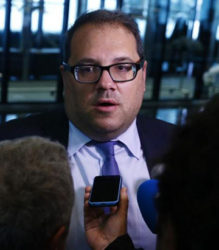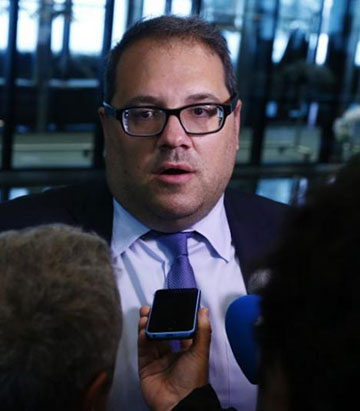ZURICH, (Reuters) – FIFA needs to take care of the players when it plans the next international match calendar, the head of a key committee at soccer’s governing body told Reuters on Thursday.
Victor Montagliani said that the international calendar and the transfer system were among the priorities for the football stakeholders committee, which brings together representatives of the players, clubs and leagues.
The current match calendar runs until 2024 and allows for around eight to 10 international matches per year in addition to major tournaments such as the World Cup, European championship and Copa America.

Top players can easily play 60 to 70 matches in a season for their clubs and national teams.
“It’s a pretty busy match calendar, so we need to take care of the players, all of us, because at the end of the day, that’s what we’re all here for,” said Montagliani, who is also president of CONCACAF.
“The FIFA staff have started collecting data in terms of people’s opinions… they have started to talk to coaches, they have talked to players, they have talked to all the stakeholders.”
The new committee, which met for the first time on Thursday, was set up after soccer’s governing body FIFA was engulfed by a series of corruption scandals.
Its members include former international players Cafu and Edwin van der Sar, AS Roma chief executive Umberto Gandini, Bundesliga CEO Christian Seifert and Philippe Piat, head of the world players’ union FIFPro.
The committee’s role includes advising the FIFA Council on “all matters relating to football, particularly the structure of the game, as well as on all technical matters.”
Relations between FIFPro and the clubs have sometimes been tense, with the union regularly complaining of clubs who do not respect players’ contracts.
In 2015, FIFPro made a legal complaint at the European Commission against the transfer system which is said was fundamentally flawed.
However, Montagliani said there was a positive mood at the meeting.
“Everybody understands that if people are coming to the committee with a zero sum game mentality, nobody is going to win,” he said.
“The game needs to be better so if the game gets better, everyone will win.
“I thought it was very good, very positive and the right attitude was there.”

